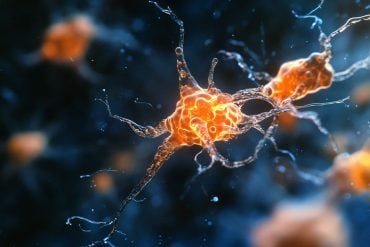Summary: Severe memory loss, akin to today’s dementia epidemic, was extremely rare in ancient Greece and Rome, indicating these conditions may largely stem from modern lifestyles and environments.
Analyzing classical texts, the study found minimal mentions of cognitive impairments in these ancient civilizations, contrasting sharply with current dementia rates. The comparison with the Tsimane Amerindians, who lead a preindustrial lifestyle and show low dementia rates, further supports the theory that physical activity levels and environmental factors significantly influence dementia prevalence.
This historical and comparative analysis underscores the impact of sedentary behavior and pollution on cognitive health, offering insights into preventing modern-age dementias.
Key Facts:
- Ancient Greek and Roman texts show very few cases of cognitive impairments, suggesting diseases like Alzheimer’s were rare 2,000 years ago.
- The study contrasts ancient dementia prevalence with that of the Tsimane people, who have low dementia rates due to their active, preindustrial lifestyle.
- Environmental factors, such as air pollution and sedentary behavior, are highlighted as significant contributors to the modern increase in dementia cases.
Source: USC
You might think age-related dementia has been with us all along, stretching back to the ancient world.
But a new analysis of classical Greek and Roman medical texts suggests that severe memory loss — occurring at epidemic levels today — was extremely rare 2,000 to 2,500 years ago, in the time of Aristotle, Galen and Pliny the Elder.
The USC-led research, published in the Journal of Alzheimer’s Disease, bolsters the idea that Alzheimer’s disease and related dementias are diseases of modern environments and lifestyles, with sedentary behavior and exposure to air pollution largely to blame.

“The ancient Greeks had very, very few — but we found them — mentions of something that would be like mild cognitive impairment,” said first author Caleb Finch, a University Professor at the USC Leonard Davis School of Gerontology.
“When we got to the Romans, and we uncovered at least four statements that suggest rare cases of advanced dementia — we can’t tell if it’s Alzheimer’s. So, there was a progression going from the ancient Greeks to the Romans.”
Ancient Greeks recognized that aging commonly brought memory issues we would recognize as mild cognitive impairment, or MCI, but nothing approaching a major loss of memory, speech and reasoning as caused by Alzheimer’s and other types of dementia.
Finch and co-author Stanley Burstein, a historian at California State University, Los Angeles, pored over a major body of ancient medical writing by Hippocrates and his followers. The text catalogs ailments of the elderly such as deafness, dizziness and digestive disorders — but makes no mention of memory loss.
Centuries later in ancient Rome, a few mentions crop up. Galen remarks that at the age of 80, some elderly begin to have difficulty learning new things. Pliny the Elder notes that the senator and famous orator Valerius Messalla Corvinus forgot his own name. Cicero prudently observed that “elderly silliness … is characteristic of irresponsible old men, but not of all old men.”
Finch speculates that as Roman cities grew denser, pollution increased, driving up cases of cognitive decline. In addition, Roman aristocrats used lead cooking vessels, lead water pipes and even added lead acetate into their wine to sweeten it — unwittingly poisoning themselves with the powerful neurotoxin.
(A few ancient writers recognized the toxicity of lead-containing material, but little progress was made in dealing with the problem until well into the 20th century. Some scholars blame lead poisoning for the fall of the Roman Empire.)
For this paper, Finch did not just think about the Roman Empire or the Greeks. In the absence of demographic data for ancient Greece and Rome, Finch turned to a surprising model for ancient aging: today’s Tsimane Amerindians, an Indigenous people of the Bolivian Amazon.
The Tsimane — like the ancient Greeks and Romans — have a preindustrial lifestyle that is very physically active, and they have extremely low rates of dementia. An international team of cognitive researchers led by Margaret Gatz, a professor of psychology, gerontology and preventive medicine at the USC Leonard Davis School, found among older Tsimane people, only about 1% suffer from dementia. In contrast, 11% of people aged 65 and older living in the United States have dementia, according to the Alzheimer’s Association.
“The Tsimane data, which is quite deep, is very valuable,” Finch said. “This is the best-documented large population of older people that have minimal dementia, all of which indicates that the environment is a huge determinant on dementia risk. They give us a template for asking these questions.”
The paper was supported by funds from the Cure Alzheimer’s Fund and the National Institutes of Health (P01 AG055367 and R01 AG05442).
About this Alzheimer’s disease and neurology research news
Author: Leigh Hopper
Source: USC
Contact: Leigh Hopper – USC
Image: The image is credited to Neuroscience News
Original Research: Closed access.
“Dementia in the Ancient Greco-Roman World Was Minimally Mentioned” by Caleb Finch et al. Journal of Alzheimer’s Disease
Abstract
Dementia in the Ancient Greco-Roman World Was Minimally Mentioned
Background: The possibility that Alzheimer’s disease and related dementias (ADRD) is a modern disease arises from the minimal mention of advanced cognitive decline by ancient Greeks and Romans, who were mainly concerned with the physical frailties of older ages.
Objective: Because standard medical histories of elderly health lacked mention of cognitive decline, we examined texts by Greek and Roman authors that mentioned memory loss and dementia. Methods: Primary texts of Greco-Roman authors, 8th century BCE into the 3rd century CE, that mentioned cognitive decline were identified and critically evaluated. Secondary sources were excluded.
Results: No ancient account of cognitive loss is equivalent to modern clinical data. The term dementia was occasionally used in antiquity, but not invariably linked to old age. Ancient Greeks and Romans expected intellectual competence beyond age 60. While some memory loss was acknowledged, we found only four accounts of severe cognitive loss that might represent ADRD. The possibility of modest ADRD prevalence in ancient Greece and Rome is consistent with its low prevalence in the Tsimane of Bolivia. These contemporary Amerindians live under conditions of high mortality from frequent infections and minimal cardiovascular disease with physically demanding lives. Tsimane after age 60 had increased mild cognitive impairment; the few cases of dementia were not clinically consistent with AD.
Conclusions: The modern ‘epidemic level’ of advanced dementias was not described among ancient Greco-Roman elderly. The possible emergence of advanced ADRD in the Roman era may be associated with environmental factors of air pollution and increased exposure to lead. Further historical analysis may formulate critical hypotheses about the modernity of high ADRD prevalence.







